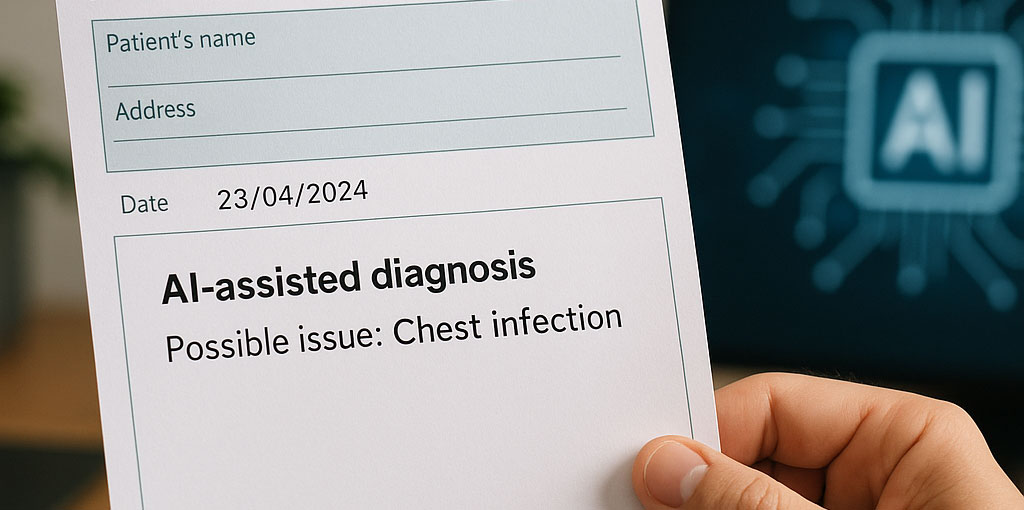Artificial intelligence (AI) is rapidly transforming UK primary care. According to NHS England, more than 80 NHS trusts are already piloting or deploying AI tools to analyse imaging, flag abnormal test results, and assist in triage or diagnosis. The government’s £21 million AI Diagnostic Fund, announced in 2023, further supports this digital acceleration by rolling out AI solutions across NHS Trusts to improve diagnostic turnaround times.
In general practice, AI tools are increasingly used to interpret patient data, identify red flags, and suggest possible diagnoses – offering faster, data-driven insights to support clinicians under growing workload pressures. The NHS Long Term Workforce Plan (2023) highlights that GP shortages are expected to persist into the 2030s, adding urgency to the search for time-saving technologies.
However, with innovation comes new risk. Errors in algorithms, data bias, or over-reliance on AI recommendations could all lead to misdiagnosis or patient harm, raising complex questions about accountability. A 2024 BMJ Health & Care Informatics review found that while AI can increase diagnostic accuracy by 10-15% in some clinical settings, inconsistent data quality and lack of transparency in algorithms remain major concerns.
While AI can enhance clinical accuracy, the duty of care ultimately remains with the GP. If harm occurs, liability may rest with the clinician, the practice, or even the software provider, depending on how the AI is used, documented, and governed. The Medical Defence Union (MDU) has cautioned that clinicians should treat AI as an assistive tool, not a replacement for clinical judgement, and ensure any decision is clearly supported by clinical reasoning.
To reduce risk, practices should:
- Maintain robust oversight and human review of AI outputs.
- Provide staff training on AI use and data governance.
- Review indemnity and insurance cover to ensure AI-related risks are included.
- Keep transparent records of decision-making where AI is involved.
At Practice Cover, we recognise that the integration of AI into primary care represents both a remarkable opportunity and a significant responsibility. As technology reshapes the way clinicians diagnose, treat, and manage patients, practices must ensure that innovation is underpinned by sound governance, clinical vigilance, and appropriate protection. By combining digital progress with robust indemnity and risk management, healthcare professionals can confidently embrace AI tools while safeguarding patient welfare and professional accountability. The future of healthcare may be powered by algorithms, but its integrity will always depend on the people who use them.



